A.SPIRE
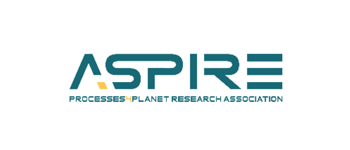
A.SPIRE is the European Association which is committed to manage and implement the Processes4Planet co-programmed Partnership from the private side. It represents innovative process industries, 20% of the total European manufacturing sector in employment and turnover, and more than 170 industrial and research process stakeholders from more than 20 countries spread throughout Europe.
A.SPIRE brings together cement, ceramics, chemicals, engineering, minerals and ores, non-ferrous metals, pulp and paper, refining, steel and water sectors, several being world-leading sectors operating from Europe. The mission of A.SPIRE is to ensure the development of enabling technologies and best practices along all the stages of large scale existing value chain productions that will contribute to a resource efficient process industry.
Bruxelles, Belgium.
EYDE-Cluster

The EYDE-Cluster is the Norwegian Centre of Expertise for Sustainable Process Industry, working for the transition towards a sustainable future.
The members of the EYDE Cluster range from multinational companies delivering high quality materials to a global marked, to regional suppliers, research organizations and education institutes. The members are mainly located in the South of Norway, a region with a strong tradition of producing tailor made materials made from renewable energy and with the lowest environmental footprint. The cluster is actively developing this position to ensure competitiveness in a world that requires sustainability.
Norway
Utilization of a slag from metals production at Eramet in Kvinesdal, Norway
The EYDE-Cluster in Norway is a process industry cluster that is marked by the lack of co-located industries. Industrial facilities are located individually with varying local conditions resulting in a variety of options and solutions.
Therefore, the cluster has adopted a “symbiosis by design” approach to develop novel circular parcs centred around the existing process industry facilities. We also support the utilization of industrial side streams over the regions and national borders and have mapped over 10 mio. tonnes of industrial side streams from Norwegian processes.
One recent example is the utilization of a slag from metals production at Eramet in Kvinesdal. 300.000 tonnes of Silica Greenstone have been turned into a feedstock for other industries. In addition to the diversion from landfilling it substitutes 300.000 tonnes of cement or aggregate with their equivalent emissions. Business development of “Greenstone” is actively ongoing, several other utilizations are being explored according to their impact and their value creation potential. More historically, Micro silica turned from a side stream into a significant business operation and new product for Elkem.
Other examples in the region are the utilization of low- grade waste heat for aquaponic facilities to temperate their fishtanks or for district heating purposes.
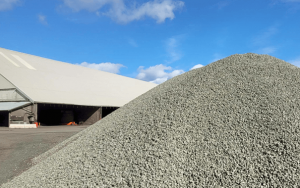
© Eramet/ SINTEF
Brightlands Circular Space

Brightlands Chemelot Campus, Maastricht University and TNO have recently joined forces for the development of Brightlands Circular Space, an alliance that will accelerate circular plastics for a future-oriented circular economy with international impact. Together they built on the successful circular materials ecosystem of Brightlands Chemelot Campus in Sittard-Geleen (The Netherlands) and expand activities to accelerate the development of circular plastics on an industrial scale.
Beating heart of Brightlands Circular Space will be a fully circular open and accessible demonstration facility, operational in 2026. This facility will serve as an international hub for scientific and applied research, companies, and consortia. They have access to state-of-the-art equipment and expertise to research, develop, analyze, and test large-scale reuse of plastic waste. On a site of over four hectares, four different facilities will be realized for this purpose: the House for Circular Co-creation, the Skid, pilot and demonstrator facility, the Polymer Processing facility, and the Plastic Waste Preprocessing facility. In line with national and international ambitions for circular plastics, Brightlands Circular Space not only focuses on technological innovation, but also on new forms of collaboration, human capital, and social and business models. The demonstration facility will act as a catalyst for improved pre-processing, mechanical and chemical recycling technologies, circular design and scale-up into new materials and products.
Sittard-Geleen, The Netherlands.
Herøya Industripark

Herøya Industripark is Norway’s leading industry park with commercial production of e.g. fertilizer, refined manganese alloys and polyvinyl chlorides for the global market. Herøya Forskningspark, the research center, is an integral part of Herøya Industripark and offers one of the country’s most attractive research environments.
R&D and pilot plant activities are often closely related to the commercial factories, with focus on sustainable development of the process industries. The industry park has key infrastructure such as cooling water, port structure, an electrical power network with renewable energy. The park is home to more than 80 companies with around 3400 employees. Today, partial circular processes are implemented at Herøya, such as production of CO2 for the food & beverage industry based on CO2 from Yara’s fertilizer plant.
Porsgrunn, Norway
Process4Sustainability

The Process4Sustainability cluster is a network of companies in the process industry, research institutions and social innovation partners, based at Industriepark Höchst in Hesse, Germany. The cluster’s aim is to proactively shape the transformation process towards climate neutrality by identifying concrete measures for individual companies.
Quote by Prof. Hannes Utikal, Process4Sustainability: “Industry parks are hotspots of transformation. Given our network of companies with existing clients and infrastructure, we are in a good position to upscale new transformative technologies quickly and effectively. To support this process, we connect with the Hubs for Circularity Community of Practice. We want to exchange with other industry parks on methods, challenges, and ideas for this transformation.”
Frankfurt am Main, Germany.
Power-to liquid plant for the production of e-fuels
At the Industriepark Höchst site in Germany, INERATEC – together with the Centre of Competence for Climate, Environment and Noise Protection in Aviation (called CENA, established by the Hessian government) – is building a power-to-liquid plant to produce synthetic, climate friendly e-fuels. To date, it will be the biggest power-to-liquid plant for the production of synthetic fuels and chemicals from biogenic CO2 and green hydrogen worldwide.
Once up and running, the plant will be able to provide up to 2,500 tons of e-fuels and chemicals, replacing the same amount of fossil-based equivalents. Up to 8,000 metric tons of CO2 from a biogas plant will be recycled annually. At a refinery, the synthetic fuel mixture produced at the Industriepark Höchst is processed further into e-kerosene for aviation, e-diesel for shipping and fuels for automotive transportation.
The quantities produced in the planned pioneer plant are still small compared to the fuel demand at Frankfurt Airport. However, the operation of the pilot plant can provide valuable insights for the future production of synthetic kerosene on a larger scale. In addition to the savings in CO2 emissions, the fuel also produces less air pollutants when burned.
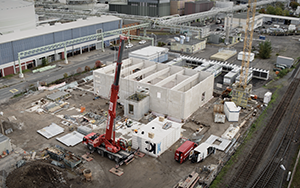
@ INERATEC GmbH
Hydrogen train fleet fuelled by hydrogen generated as by-product at Industriepark Höchst, Germany
To achieve our climate goals, emissions in transport need to be reduced significantly. Therefore, efficient, emission-free mobility solutions and an energy system without CO2 emissions need to be developed. Hydrogen is part of the solution, especially for heavy commercial vehicles, ships and rail operations. Thanks to hydrogen technology, we will also be able to travel climate-neutrally and quietly on parts of the network where electrification would be too costly.
Frankfurt Rhine-Main region is an important European transportation hub. The world’s largest hydrogen train fleet is being developed there for the Taunus network in Hesse, Germany – a milestone in sustainable mobility, since a climate-friendly alternative is being tested for all those routes on which electrification via overhead lines is not an option. Besides making the public transport system more environmentally friendly, the hydrogen trains are also more silent than conventional trains.
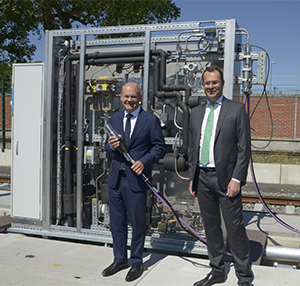
©Infraserv GmbH & Co. Höchst KG, 2024
Mo industrial Park

Mo Industripark (Mo Industrial Park) in Norway aims to become a world-class green industrial park that creates value through environmentally friendly and energy-efficient solutions. Under the strategic program MIP Sustainability, established in 2015, Mo Industripark has worked to increase investments, improve existing industry and establish new green industry. The program focuses on three main areas: Energy efficiency, circular economy, and emission reduction. There are around 110 different companies in the industrial park, with 2500 employees combined.
Industrial Symbiosis is a key concept to materializing results on these focus areas for regions with extensive process industries. Hubs4Circularity is a vehicle to expand the concept. The park, along with this region, is already benefiting from industrial scale exchange of energy and material through e.g. district heating, slag-recycling and waste gas repurposing. The evidence is clear that industrial symbiosis has mutual benefits to both industry and society, strengthening economic competitiveness and environmental performance.
Mo i Rana, Norway
From waste to resource
At Mo Industrial Park in Norway, everything that can be recycled is recycled. To give an example, Øijord og Aanes Entreprenørforretning AS, a Norwegian construction company, uses the slag from Ferroglobe Mangan Norge AS as a filler in parking lots or road construction. The slag is formed during the smelting process that refines metal at Ferroglobe, where it is separated in the furnaces from the molten metal, leaving the pure metal in the crucible. The slag from Ferroglobe first undergoes a crushing process. Then, material samples are analyzed. Instead of the by-products from Ferroglobe ending up as waste, they can be recycled and made into new products. The parking lot in front of Coop OBS is built on material made from slag. The same applies to the areas at Rana Industriterminal in Langneset, which are filled with fill from Øijord and Aanes, among others.
The facilities in Mo Industrial Park are an important factor enabling the creation of synergies between the companies. The industrial park is well equipped for collaboration and environmentally friendly operations.
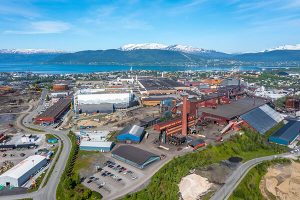
© Mo Industripark AS
Melting furnaces heat up the city
Mo i Rana, a picturesque city of around 20,000 people close to the arctic circle in Northern Norway, is profiting from a convenient industrial-urban symbiosis. Mo Fjernvarme AS, one of Northern Norway’s largest producer of district heating, is supplying surplus energy from Mo Industrial Park to the city. Most of the large buildings in Mo i Rana are heated by water pumped through underground pipes throughout the city – including a hospital, the City Hall, a number of schools and even the branch of the National Library situated in Mo i Rana. The water in the pipes acts as a medium for transporting energy.
Mo Fjernvarme’s heat mainly originates from surplus heat in the flue gas from the melting furnaces at Elkem Rana AS. The flue gas from production contains large amounts of energy, which is extracted through two flue gas boilers. The boilers produce steam, which in heat exchangers transfers the energy to the district heating network. This is then sent through underground water pipes in the city.
The hot water from Mo Fjernvarme is distributed through 29 kilometers of pipes that wind through Mo Industrial Park and out to customers in the city and surrounding areas, like a network of blood vessels in a human body. The water is piped to the customers, who then have their own system to distribute the energy. The water is then transported back to the boilers through 29 new kilometers of pipes. At Mo Fjernvarme’s plant, it is reheated, creating a circular flow of water.
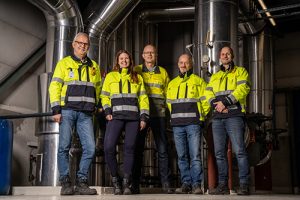
© Mo Industripark AS
Kalundborg Symbiosis

Kalundborg Symbiosis is a partnership between eighteen public and private companies in Kalundborg, Denmark. The main principle is that a waste stream in one company becomes a resource in another, benefiting both the environment and the economy. The symbiosis creates growth in the local community and supports the green transition.
Kalundborg, Denmark.
VITO NV

VITO is the science-to-technology partner for companies, governments and society in sustainability transition. We have focused our research activities on three domains in which we want to achieve maximum impact in Flanders, Europe and the world: a regenerative economy, a healthy living environment and resilient ecosystems.
Mol, BELGIUM.
Urban Camel
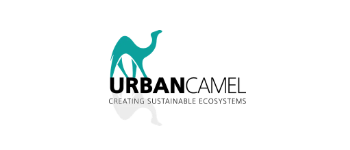
Urban Camel is more than just a cool name. It reflects our vision. It is a metaphor for mimicking the way natural ecosystems manage resources and interact, and applying their principles to our operations in the urban environment to improve resource efficiency and build resilience.
We are a boutique agency specialising in strategic research and innovation for sustainable development and circular growth. Our expertise lies in industrial ecology, the ‘science of sustainability’, while our approach is rooted in systems thinking. We study the problem space and solution space and use circular tools to explore new circular solutions or systems that are more effective and robust. We also offer training in circular thinking and certification in the circular economy.
Our established network of domain experts works across industries. Our areas of expertise include the water-energy-food nexus and blue growth sectors.
Athens, GREECE
UK Manufacturing Symbiosis Network Plus
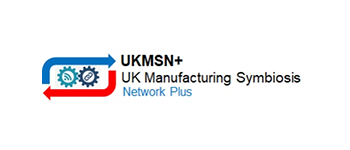
The UKMSN+ will adopt a multi-disciplinary approach to exploiting enabling mechanisms and tools to facilitate and support the development of industrial symbiosis synergies in the UK manufacturing industry, this way improving the overall circular economy competence and competitiveness of manufacturing businesses across key sectors of the economy.
gtr.ukri.org/projects?ref=EP%2FS036091%2F1
Birmingham, UNITED KINGDOM.
Regional Education and Information Centre for Sustainable Development in South-East Europe
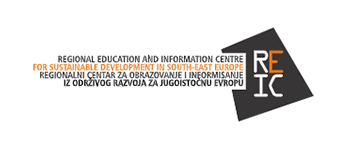
REIC is non-profit, non-governmental organisation founded in 2005. Located in Sarajevo, lunched as integral part of the regional training project scheme (EESD – Environmental Education for sustainable development) for the Adriatic-Ionian basin. The project was funded by Italian Ministry of Foreign Affairs, implemented by UNESCO-Venice office in partnership with University of Sarajevo, University of Bologna and Institute for Central, Eastern and Balkan Europe.
Sarajevo, BOSNIA AND HERZEGOVINA
Commission for Regional Development and Coordination of Lisbon and Tagus Valley (CCDR-LVT)
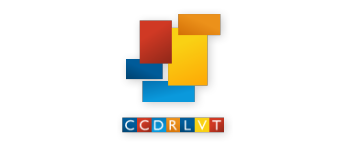
The Commission for Regional Development and Coordination of Lisbon and Tagus Valley, I.P. (CCDR LVT, I.P.) is a special regime public institute that is part of the state’s indirect administration, with legal personality and administrative, financial and patrimonial autonomy.
The main activities of CCDR LVT, I.P. are to contribute to the definition of public policies on territorial planning and economic, social, environmental, cultural, education, land-use planning and nature conservation, and agriculture and fisheries development, and the implementation of those policies in the Lisbon and Tagus Valley Region (RLVT) and to manage the Regional Programme of Lisbon (Lisboa 2030).
The area under CCDR LVT, I.P. jurisdiction includes the Numenclature of Units for Territorial Statistics III of Lisbon Metropolitan Area, Setúbal Peninsula, Oeste, Lezíria do Tejo and Médio Tejo, covering 52 municipalities.
Lisbon is the capital region of Portugal.
Lisbon, PORTUGAL
SMARTUP
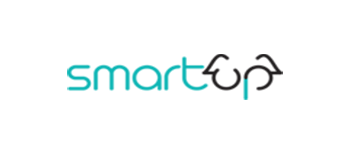
Our aim is to catalyze innovation for change in the region and further. By establishing a channel for new opportunities, partnerships, projects and initiatives which make an impact in various areas, we are able to design and offer applicable, novel solutions which will meet the growing demand.
By applying custom design processes and adapting methods we drive systematic change to address the existing and emerging societal challenges in order to create a thriving environment for uninterrupted human prosperity.
We include and connect institutions, organizations, collectives, and individuals in order to co-create for a sustainable future where everyone has the means to fulfill their own potential.
From human design to citizen data-telling.
Skopje, NORTH MACEDONIA
Slovenian Ministry of Cohesion and Regional Development
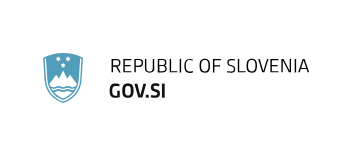
The Ministry of Cohesion and Regional Development is responsible for the implementation of the European cohesion policy and regional development. It handles the absorption of funding provided by the European Structural Funds and the Cohesion Fund, as defined by the applicable legislation of the European Union. Ministries, government offices and other stakeholders are included in this process as the national managing authorities.
The Ministry coordinates and monitors their activities for the implementation of the cohesion policy and reports to the Government. It is responsible for the consistency of national development planning documents and the consistency of the national development planning documents with the development documents of the European Union and other international organisations. The Ministry also performs management tasks related to other financial mechanisms, such as the Norwegian Financial Mechanism and the EEA Financial Mechanism. The Ministry focuses on planning regional development and implementing national and European programmes; it is also active in the area of entrepreneurship.
Ljubljana, SLOVENIA
Sidenor

Sidenor is a steel company, leader in the European steel industry for the production of special steel long products. It is also an important supplier of cold finished products in the European market. The company has production centers in Basque Country, Cantabria and Catalonia as well as business delegations in Germany, France, Italy and the U.K.
The company has highly specialized facilities offering solutions for all industrial sectors requiring high quality steel services.
Sidenor’s steel production capacity exceeds one million tons annually, primarily destined to the automobile, machinery, capital equipment, railway, energy, mining and petrochemical industries. In all of these industries, Sidenor’s special steel is used to manufacture reliable products.
The company is at the frontline of the sector thanks to their intense research commitment. Having one of the largest R&D centers in the European steel sector, Sidenor’s technological developments offer optimization of products and processes.
Basauri, SPAIN
PRODUTECH - Production Technologies Cluster

PRODUTECH – Production Technologies Cluster – is an initiative promoted by the Portuguese Industry of Manufacturing Technologies. This Cluster comprises companies that are capable of addressing competitiveness and sustainability challenges by delivering innovative, flexible, integrated and competitive solutions in response to the manufacturing industry’s needs.
Porto, PORTUGAL
NATIONAL CIRCULAR ECONOMY INSTITUTE
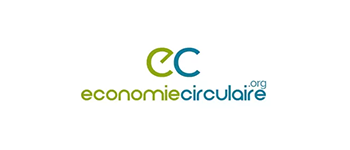
The Institute of the Circular Economy and CIRIDD, with the support of ADEME and the Ministry of Ecology, Sustainable Development and Energy, wanted to create a common place dedicated to all stakeholders in the circular economy.
Completely open access, the platform allows project leaders to exchange their experiences and access all existing tools on the subject. It is aimed at everyone (citizens, entrepreneurs, communities, large businesses, etc.) and facilitates networking through collaborative spaces.
The EconomieCirculaire.org network in a few figures:
– More than 660,000 users present on the circular economy platforms (in 2023);
– More than 1,600,000 pages read on the circular economy platforms (in 2023);
– Nearly 2,000 circular economy initiatives mapped at national and international level (in 2023);
– More than 60 national and international events included in the calendar (in 2023);
– More than 2,000 organizations mapped nationally and internationally (in 2023).
France
MOTIVA OY
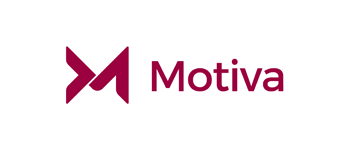
Motiva provides the public sector, businesses, municipalities and consumers with information, solutions and services that allow them to make resource-efficient, effective and sustainable choices.
Motiva Oy is a company wholly owned by the state that offers expert services to accelerate sustainable development. We promote the efficient and sustainable use of energy and materials. We implement projects with an impact on society in cooperation with several operators. We are a strong networker and productive communicator. Our operations are guided by broad-mindedness and productivity. We have a broad portfolio of services.
Motiva Oy owns (100%) the subsidiary Motiva Services Oy, which primarily provides services to companies and municipalities, and Ympäristömerkintä Suomi Oy, which administers both the Nordic environmental label Joutsenmarkki and the EU ecolabel in Finland.
Helsinki, FINLAND
LIPOR Waste Agency
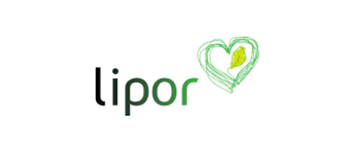
LIPOR – Municipalities Association for Sustainable Waste Management of Greater Porto – was founded in 1982 as Municipality Association and manages, recovers, and treats the municipal waste produced in eight municipalities of the Greater Porto Area: Espinho, Gondomar, Maia, Matosinhos, Porto, Póvoa de Varzim, Valongo, and Vila do Conde. At the same time, we continue to share good practices with the population, which are supported by awareness campaigns.
Every year, we treat around 500,000 tons of municipal waste which is produced by about 1 million inhabitants.
Porto, PORTUGAL
EUROPEAN REMANUFACTURING COUNCIL
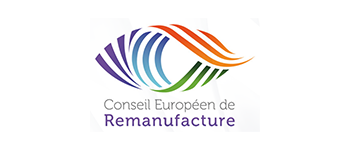
The European Commission has asked for a coordinated voice from EU-28 remanufacturing businesses. The Conseil Européen de Remanufacture will represent small and large businesses from all remanufactured product sectors.
Vision: our ambition is to triple the value of Europe’s remanufacturing sector to €100 billion by 2030. We will bring together businesses from every product sector to share knowledge, and seek changes to policy with the aim of making remanufacturing a normal part of a product life cycle.
Brussels, BELGIUM.
EUROCITIES
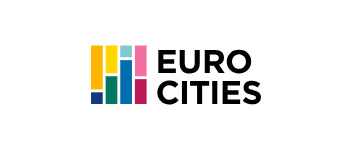
Eurocities is the largest network of European cities. We count over 200 large cities among our membership, representing more than 150 million people across 38 countries, from within and outside the European Union.
Our mission is to build places where people can enjoy a good quality of life in a healthy, green environment. Where low-carbon and smart solutions make for cleaner air and better public services. And where people can move around sustainably, feel connected to their community and all newcomers are welcomed.
Eurocities is where local governments meet, exchange ideas and work together to bring positive change. Day in, day out, our member cities address global issues at the local level, from climate change to integration to the digital transition, among many others.
Our work is as diverse as the municipalities that make up the Eurocities universe. Our actions cut across a broad range of themes and foster change through advocacy and projects, while our membership offers extensive networking opportunities, activities, events, training and campaigns.
Brussels, BELGIUM.
Environmental and Territorial Management Institute - ETMI
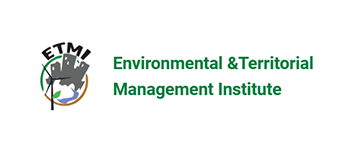
Environmental and Territorial Management Institute (ETMI) is a non-profit organization founded in March 2014.
ETMI collaborate with experts in the field of environment, territory and other related fields to promote environmental and territorial management at regional, national and international level in accordance with modern sustainable development standards.
Our values
The Environmental and Territorial Management Institute stands for sustainable development, environmental justice, territorial management, transparency, participatory democracy.
It promotes the clean, healthy and sustainable environment.
Albania
EBN - European Business and Innovation Centre Network
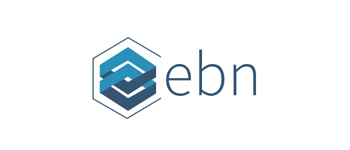
EBN (European Business and Innovation Centre Network) is a not-for-profit that serves a pan-European, global community of people that use innovative business as a driver for regional (economic) development.
EBN’s initiatives include EU|BIC certification, development and distribution of quality business support programmes, facilitation and initiation of project collaborations, global networking and advocacy for excellent business support actors like the EU|BICs.
Brussels, BELGIUM.
CLUB AUBE
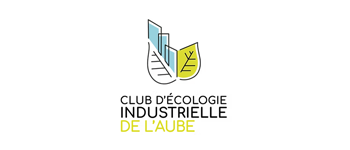
The Aube Industrial Ecology Club (CEIA) is an association (under the 1901 law) which operates throughout the Aube region. It brings together around forty organisations (companies, institutions, associations, professional groups, educational and research establishments, etc.) in order to facilitate cooperation, exchanges, pooling and synergies in industrial and territorial ecology between the economic players in the area.
France
CECOLAB
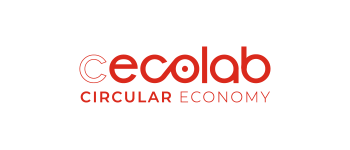
We are the collaborative laboratory for the circular economy. Through specialized research, we develop sustainable market solutions in a model of CIRCULAR ECONOMY for strategic value chains national level, with a high repercussion effect on other value chains of the Portuguese economy and with high international impact. We provide innovation management consulting services high quality advice and transfer knowledge for companies, investors, governments, associations, NGOs and universities, adding value and enabling economic growth at all levels.
United Kingdom
ARNHEM-NIJMEGEN GREEN METROPOLITAN REGION
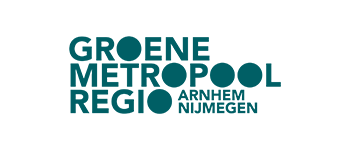
The Green Metropolitan Region Arnhem-Nijmegen (GMR) is a partnership of 17 municipalities based on a joint vision. The organisation mainly focuses on challenges in the spatial domain.
The GMR includes the municipalities of Arnhem, Berg en Dal, Beuningen, Doesburg, Druten, Duiven, Heumen, Lingewaard, Mook and Middelaar, Nijmegen, Overbetuwe, Renkum, Rheden, Rozendaal, Westervoort, Wijchen and Zevenaar.
The Netherlands
APQuímica – the Portuguese Association for the Chemical, Petrochemical and Refining sectors
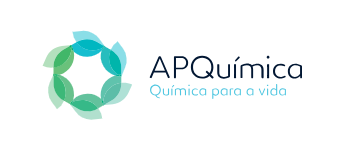
APQuímica is the national association of reference for the Chemical, Petrochemical and Refining sector. It is also the managing entity of the Petrochemical, Industrial Chemistry and Refining Competitiveness Cluster.
APQuimica currently has more than 60 members, including large industrial companies, SMEs, Startups, Universities, R&D Centers and other entties with relevant activity throughout its value chain.
Its mission is to contribute to the sustainable evolution of its associates’ activities, as well as to strengthening their competitiveness and the continuous improvement of their practices.
Portugal
APICER Portuguese Association of Ceramic Industries
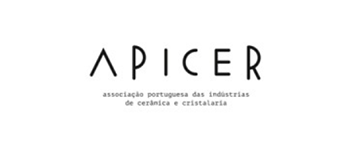
APICER – Portuguese Association of Ceramics and Domestic Glass Industries was created in December 20, 1996, from the combined effort of the three associations that for more than 20 years have shared the national ceramics sector representation, thus assuming, within this context, the role of being the only associative structure of the sector national wide. According to the Association’s Statutes, all the singular and collective companies can be ordinary members, whatever their legal nature is, and whose activities in the national territory are classifiable in the various sub sectors of the ceramic industries. Therefore, APICER encompasses the following departments:
– Ceramic finishes (floors and coatings);
– Special ceramics (refractory, electro technical products and others);
– Structural ceramics (tiles, bricks, cap vaults, stoneware pipes and rustic bricks);
– Sanitary ware ceramics;
– Utilitarian and decorative ceramics
– Glassware (table and decorative glass)
The Association’s mission is to represent its members of the national ceramics and domestic glass industry and to defend their business interests, in order to promote the sector’s competitiveness growth, thus assuring a sustainable development and the cooperation’s improvement between companies and sectors.
Portugal
AGUAS DE PORTUGAL
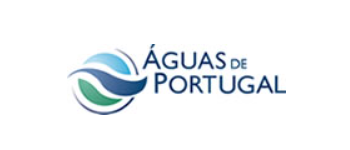
We are a business group with exclusively public capital and, as our core activity, undertaking the integrated management of the urban water cycle, spanning each of its phases from the extraction, treatment and distribution of water for public consumption to the collection, transport, treatment and discharge of urban and industrial wastewaters, including their recycling and reutilisation.
With regional operations across mainland Portugal and an international presence in various countries, we also carry out activities not only in the renewable energy sector, maximising the energy production capacity of our assets and endogenous resources, but also in new business areas and with circular economy products.
Portugal
ADEME
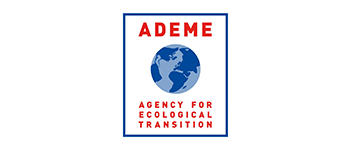
ADEME participates in the construction of national and local policies for ecological transition. For this, we rely on our teams, present throughout France, and on a budget dedicated to our means of intervention. Our missions, organisation and operation are set out in the French Environmental Code.
www.ademe.fr
France
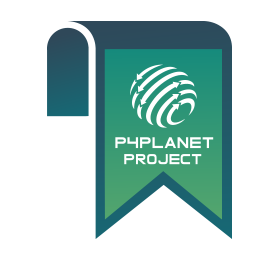

H4C Europe is funded under grant agreement N°
101058416.
H4C ECoP is funded under
grant agreement N° 101058656.